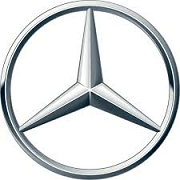February 23, 2017
|
Friday words, 2017-02-23
|
4110 hit(s)
To start this week's words post on a personal note, I turned 60 this last weekend. People were curious if I was sad about this. Not at all, it turns out. I'm not sure exactly why I find this milestone so appealing. One thought is that instead of being an old middle-aged person, I am now the youngest old person I know. And on that note, on the to the words!
The new-to-me word this week is trilemma. As is often the case, this is not at all a new word (17th century). And as also often happens, I've known the concept, just not the word for it. It's an extension of the word dilemma, which refers to a choice between two unpleasant alternatives. Here, di is two, and lemma is a proposition. A trilemma, then, is a choice of three undesirable choices. Epicurus's Trilemma is a classic theological trilemma that goes like this:- If God is unable to prevent evil, he is not omnipotent.
- If God is not willing to prevent evil, he is not good.
- If God is willing and able to prevent evil, then why is there evil?
However, trilemma is also used to refer to a situation that might have three desirable outcomes, but you only get two. (In this sense, it kinda-sorta inverts the sense of dilemma.) A well-known example of this second sense of trilemma in the software business is the maxim "Fast, good, or cheap: pick two." This is also known as the project-management trilemma.
This investigation actually started when I was reading an article and ran across Rodrick's Trilemma, which states that "a nation may have two of the following three things: national sovereignty, democracy, or deep, global economic integration. It can have any combination of two. But it cannot have all three." If you're interested in how this trilemma might be updated for today's USA, I urge you to read the article.
Turning to unexpected etymology, I have two today on an automotive theme. The first is the word tire, referring to the rubber tube around the wheels. This comes from a word for the iron rim that was attached to the outside of wooden wheels to give them strength. It was later used to refer to a similar feature on locomotive wheels, and then was repurposed to refer to pneumatic rubber tires. But why tire in the first place? Per the OED, a now-obsolete sense of tire was "apparatus, equipment, accoutrement, outfit." We still have a modern cognate … attire. Thus a tire is your car wheel's clothing! Ain't etymology fun.
Did I say your car? Obviously I meant your whip. Friend Seth sent me an article from a site called TheDrive.com in which the article's author makes the curious assertion that "unlike much of what today's youth say, whip actually has depth, meaning, an etymology." In spite of this unpromising start, the author does recount an interesting history that goes back quite a ways. The tl;dr is that people used to turn horse-drawn carts by cracking a whip. The handle of the whip is a whipstock or whipstaff. In the boating world, people used the term whipstaff, or just whip, for a piece of wood that was attached to the tiller. (More details) This much is all verifiable via the OED.
 Now we get to the parts of the story that I have not been able to verify. When carriages become horseless, steering was done via a tiller-like device. The word whip was borrowed along with the tiller, and then became attached to the steering wheel when that innovation was introduced. The latter-day sense of whip supposedly referred originally to Mercedes-Benz, because the Mercedes star, enclosed in a circle, resembles a steering wheel. It's since generalized to refer to any car. It's a good story, and not implausible. If I were a real lexicographer, I'd go digging some more. Now we get to the parts of the story that I have not been able to verify. When carriages become horseless, steering was done via a tiller-like device. The word whip was borrowed along with the tiller, and then became attached to the steering wheel when that innovation was introduced. The latter-day sense of whip supposedly referred originally to Mercedes-Benz, because the Mercedes star, enclosed in a circle, resembles a steering wheel. It's since generalized to refer to any car. It's a good story, and not implausible. If I were a real lexicographer, I'd go digging some more.
Anyway, for some extra unexpected etymology this week (extra and unexpected, not extra-unexpected), try these:- James Harbeck on ramification. (Spanish speakers might have an "aha" moment.)
- John Kelly on suede.
Like this? Read all the Friday words.
|
 |
|

 |
|
